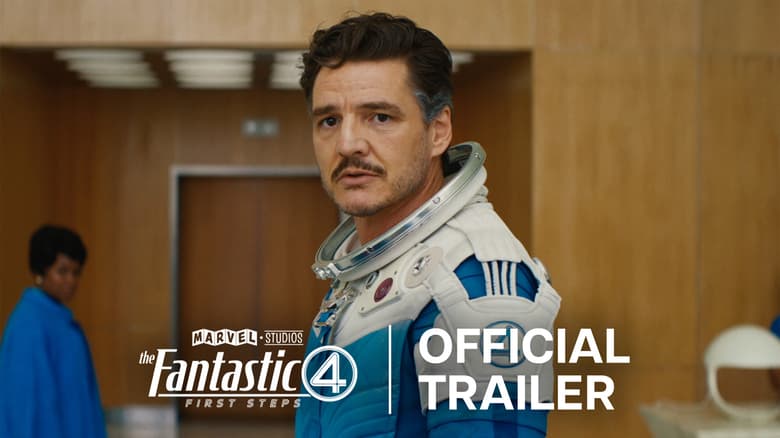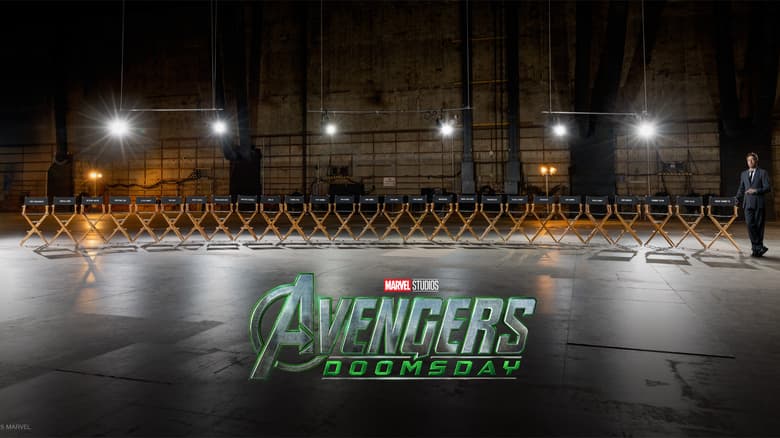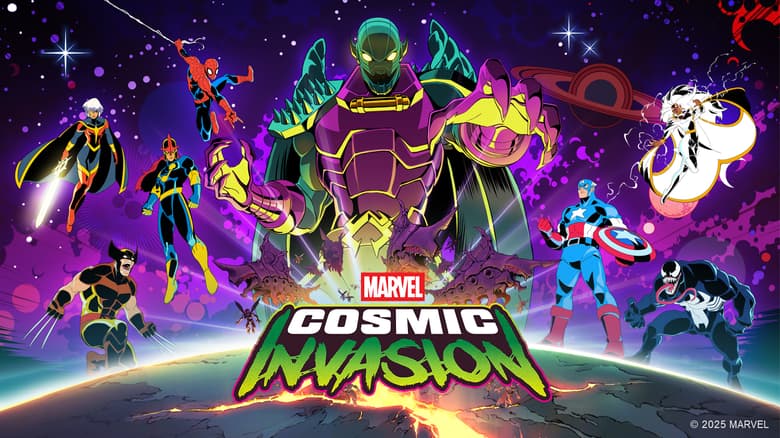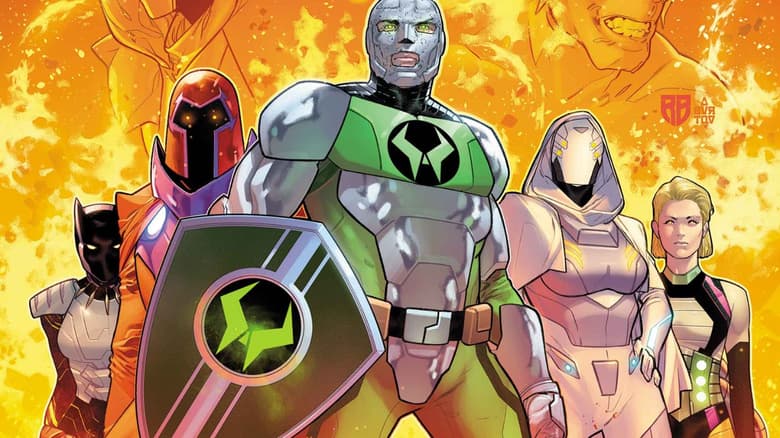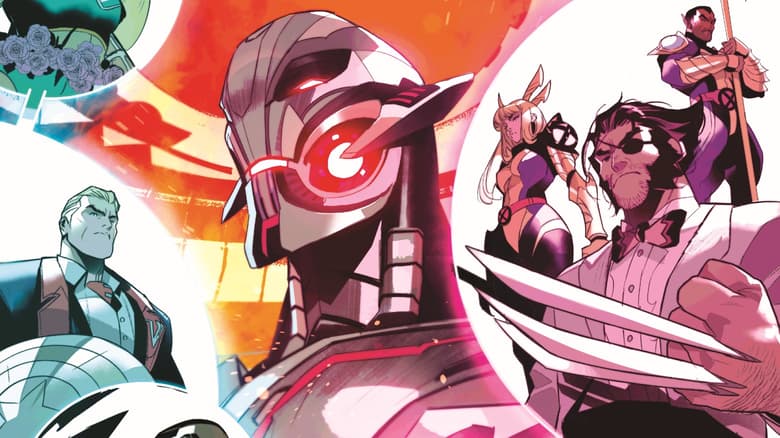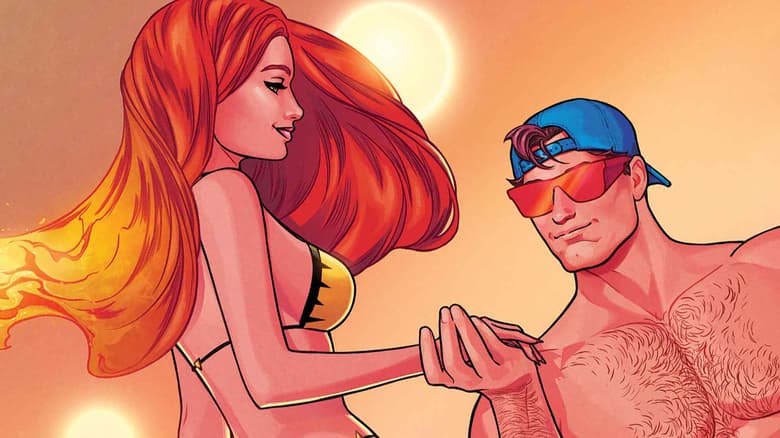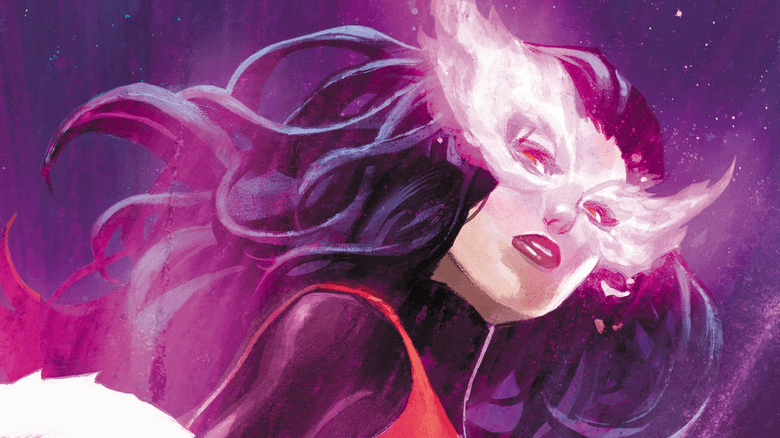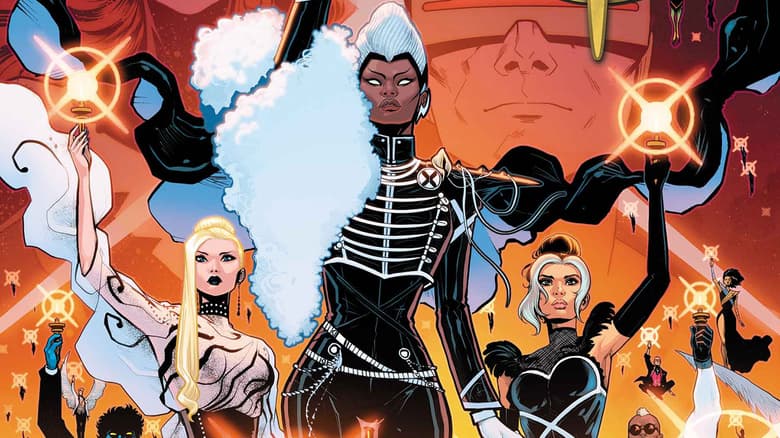‘X-Men ‘97’: Lead Character Artist Amelia Vidal on Reviving the Mutants
The X-Men return March 20 on Disney+.
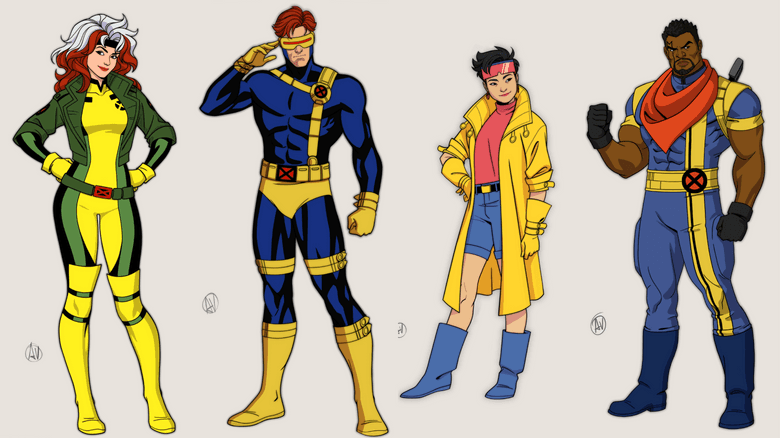
The X-Men are back, and it’s as if no time has passed! The first trailer for Marvel Animation’s X-Men ‘97 brought back all the nostalgic feels reintroducing the world to the X-Men — Cyclops, Jean Grey, Storm, Wolverine, Morph, Rogue, Beast, Gambit, Jubilee, Bishop, Nightcrawler, and Magneto. In the brand new series, arriving on Disney+ on March 20, the 10-episode season revisits the iconic era of the 1990s as The X-Men, a band of mutants who use their uncanny gifts to protect a world that hates and fears them, are challenged like never before, forced to face a dangerous and unexpected new future.
Now it’s time to revisit these old friends, as they’ve been completely refreshed for the year 2024 with so much love, care, and consideration for the original show that aired between 1992 and 1997. Lead Character Designer Amelia Vidal steps in to usher in the next generation of mutant adventures, reminiscing to Marvel.com that she grew up watching and loving the show, and thinking back on it now it meant “spending the afternoons having chocolate milk with cookies while watching [TV].” Sounds pretty great, right?
Well, go ahead and grab your own milk and cookies as Vidal dives into the process of bringing the characters to life, again, and what viewers can expect in X-Men ‘97.
Can you explain your role to those who might not know the scope of Lead Character Designer?
As a Lead Character Designer, I've created the visual style and look of the characters working alongside the studio, showrunner, and directors.
The character design is about setting the visual language for characters to serve the story needs for the show. This also includes physical descriptions and personality traits through visual information.
I design the fashion style, anatomy design, and set design tools for the design team, [so] the animators can follow and draw the characters in motion, poses, and attitudes consistently. I oversee the visual quality of the design models and assets.
Another aspect of Lead Character Designer is to direct the character design team to keep the quality and style [consistent] during the production process while collaborating with the production coordinator to organize, schedule, and manage the character art team’s day-to-day activities to deliver the designs with the best quality in the production schedule.
Do you have a connection/relationship to the original ‘90s series? What was your awareness of the show and characters before joining the project?
I knew the X-Men thanks to the original show, and I read comics from a very young age. I am from South America, specifically Argentina, and the X-Men comics were published there in the late '90s. So, the animated show introduced me to Marvel comics. I remember the show with great affection. For me, it meant spending the afternoons having chocolate milk with cookies while watching the show. I liked drawing them with my magic markers and I recorded the episodes on VHS to watch them later over and over again. I got to learn dialogues by heart, so yes...I was a big fan!
Do you have a favorite episode from the original '90s series?
I like many episodes but the ones I can think of now are “A Rogue's Tale” and “Obsession”, I think those are my favorites. Apocalypse's dialogue is fabulous, and Rogue is a character that I adore and I think is mostly because of that episode.
How did you first get involved with X-Men ‘97? I know you’ve previously worked on other Marvel Studios animation titles!
I started working at Marvel Studios at the beginning of What if...? S1 on the character design team, while I was finishing my part on S2, was asked if I would like to do a pitch for X-Men ‘97. At that time they were searching for the style of the characters for the show and I did a line-up of the main characters to present. I was so happy when I heard that they loved the characters! Once on board, I continued to work on the designs with the direction of Ryan Meinerding, Josh James Shaw, (with whom we had already worked on What If...?), Bill Perkins, and with the direction of Beau DeMayo, Jake Castorena, Brad Winderbaum, and Dana Vasquez-Eberhardt.
The series picks up with many familiar characters that audiences already know and love — what was your main goal in reviving some of these fan favorites like Wolverine, Jean Grey, and Jubilee?
I deeply love these characters, and one thing I wanted to convey was that although these designs have their own identity and style, [I wanted to make it] feel as if we were revisiting the same people again. What would I like to see as a fan of the original show after so long? I would want a reunion with the characters I met, and not strangers dressed in similar clothes. We treat the characters with a lot of respect, not just in the design team, it is something that is seen in every area of the show.
How are the character designs similar to the original series?
I think they are similar in concept, the designs of the original series are closely tied to a comic book style and translated into animation. The use of light and shadows, proportions, and design elements that were very present in the comics of the 90's, like strong colors, large detailed hair, and of course the iconic character costumes. I adore the X-Men costumes from the 90's and I believe that when something is so iconic and loved by everyone, it must be preserved and protected. If we decide to change something it should be to serve the story or to make it more technically functional to the animation, but each design decision must be made consciously. Every character design starting point is the original series.
How are they different?
From the beginning, I knew it was a 2D show and I designed with that set in mind.
In 2D, the more simplified the design, the easier it would be to animate. But due to its closeness to the original show and comics origin, simplifying them too much was not an option because I wanted them to maintain the design spirit of the original. I wanted them to work well in animation as best as possible while keeping the same outfits, making them look anatomically correct with their complex hairstyle like the original show. To preserve all of that, we organized a set of good practices on how to draw anatomy and to organize the hair into a number of large masses and small hairlines inside, stressing shapes to give volume in certain ways.
Fabrics were addressed, too. For example, the shiny spandex suits that Cyclops wears, we used black tones to reinforce his anatomy and position in a precise way to be able to move him and make him look consistent. Maybe this might be too technical and boring to read, but gives a hint on how we aboard the character interpretation on X Men´97!
There are some new lead characters in the series, Nightcrawler. What was it like designing him to fit in with the 90s aesthetic?
Nightcrawler is a character that when designing him I leaned more towards the version of the comics by Dave Cockrum and John Byrne due to its proportions, iconography, and simplification of the suit design that I think works great in animation. Same as the OG show, most of the characters were based on 70´s-90´s designs and translated to the style, we took the same direction and reviewing all the references we had, picked up what works best for the show.
Fans love Nightcrawler, is there anything else you can share about him/his character design?
I think Nightcrawler fans are going to be pleased with his performance in the show as they will be able to see him shine in different ways that I can't tell right now, but they will find out very soon. Regarding the design, as I said we went for the most iconic image of him and I think that seeing him in motion and interacting with the other characters will make fans really enjoy his design.
What character design are you most proud of and why?
It's a difficult question because I like them all. But if I had to choose, I think Magneto was fun to design and I'm proud of the final result. Also Rogue, definitely. Jubilee and Storm... I wanted her facial features to look as authentic as possible. So yes, the main team was wonderful to design. As I progressed with the designs, I realized that I liked designing characters that may not be so popular but have unusual proportions or mutant powers that make them visually special. I can't tell you who they are, but I think when you see them you'll say...this is one of the characters that Amelia must have enjoyed designing for sure!
What has it been like seeing fans react to the new series?
It was very special. Designing these characters took very hard work and was done with a lot of respect and love for the X-Men. I have a great team of talented designers who work with me daily, doing their best to make the characters look great, always going the extra mile in each design. It was gratifying to see how happy everyone was with the X-Men's return to animation and we loved seeing the fans' reactions.
What are you most excited for fans to see in X-Men ‘97?
As a fan of X-Men, I designed with the goal of what I would like to see as a fan. What can I add to the designs so that they look cool on the screen and have great animation? What can we add or remove, what can we keep and protect? what can we do to make a real upgrade? I think since I've been working on the show I haven't come across anyone who doesn't love the X-Men.
I think that will be reflected in the decisions made consciously by artists, directors, scriptwriters, coordinators, producers, and executives who love the X-Men
And we do our best day by day so that fans can reconnect with the characters we left in '97 and we can follow their stories together once again, like when we were kids but with an adult appreciation.
Marvel Animation’s X-Men 97 arrives March 20 on Disney+.
The Hype Box
Can’t-miss news and updates from across the Marvel Universe!
